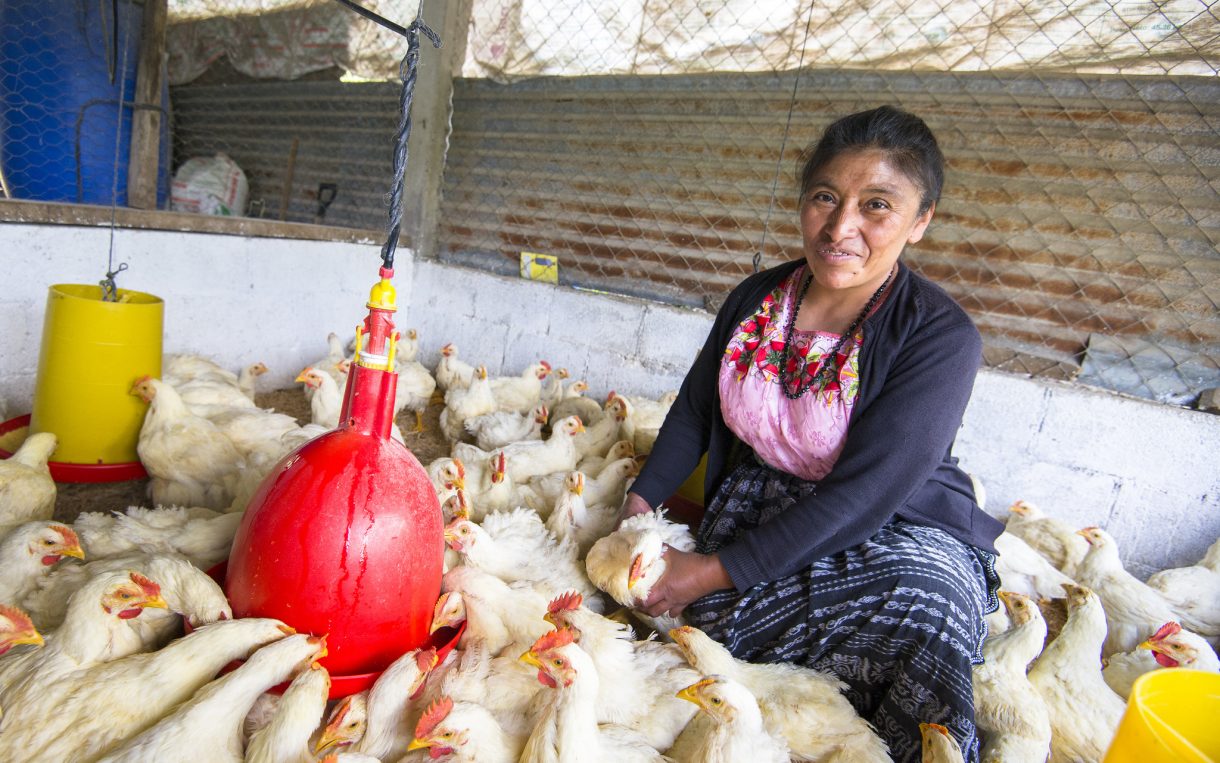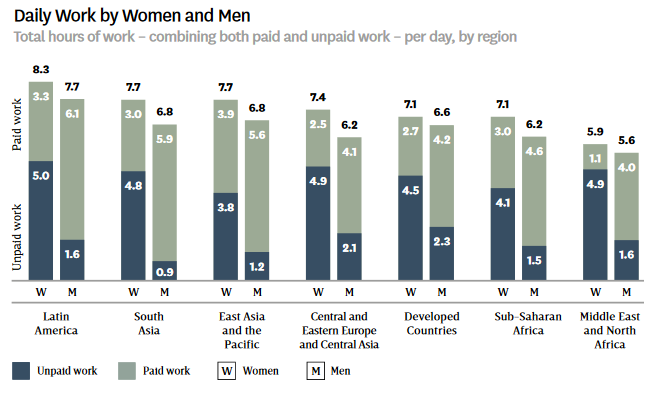How do we keep women’s economic empowerment from becoming a cliché?
 Carmen María Can Pixabaj, owner of a chicken business in Guatemala. Photo: Oxfam America/Ilene Perlman
Carmen María Can Pixabaj, owner of a chicken business in Guatemala. Photo: Oxfam America/Ilene Perlman
Political attention is good, but it must come with a deeper level of engagement.
In every country, women work longer than men. This is true for the rich and the poor, in the industrial world and in developing countries, and for urban and rural families alike. Wherever researchers study the question, women work longer hours.*
Much of women’s work is unpaid: many labor on family farms and family-owned businesses around the world. At home, women spend hours doing the cooking, cleaning, caring, and healing—hard work that often isn’t even recognized as work. If there’s any extra time, women seek employment, run small businesses, mind their own market gardens, or take side-jobs. Their paid work is often very low-pay, in low-status jobs and sectors, and can take place despite the resistance of husbands or fathers—and sometimes, even the law.
When we speak of women’s economic empowerment, we must start from the understanding that women already work hard in their lives.
The challenge for them, and for us, is to make that work pay and be seen as valuable. There are reasons that women’s work doesn’t pay, or doesn’t pay well. There are structural and legal obstacles, personal biases and social norms, not to mention the fact that so many girls lack access to education. A women’s economic empowerment agenda must take them all on.

Recently, there has been a flurry of activity on women’s economic empowerment in the US. Last Fall, Congress passed the Women’s Entrepreneurship and Economic Empowerment Act that expands financial access for small women-owned enterprises and ensures USAID uses gender analysis in its strategies and programs. Earlier this month, Ivanka Trump launched the Women’s Global Development and Prosperity Initiative.
The goals of the new White House initiative are to increase women’s workforce participation through training, support women entrepreneurs with better access to finance, and reduce formal barriers to women’s economic participation. The ambitious cross-agency initiative hopes to reach 50 million women worldwide, but given this administration’s track record on international development and women’s rights, it’s hard not to think the endeavor is more about public relations than economic empowerment for women.
Although modest in scope, the interest among politicians in promoting women’s economic empowerment is welcome. But women’s economic empowerment, like women’s empowerment more generally, isn’t primarily a technical or development project. Rather, it’s a political project and requires social transformation. These recent initiatives really only scratch the surface. Added finance and skills training can help, perhaps, but the real obstacles are much deeper and difficult to tackle.
There’s also a question about whether thinking in terms of “empowerment” is helpful or even appropriate. Perhaps “empowerment has become the sparkly pink consolation prize for the gender that continues to be excluded from actual power.” As feminist Gloria Steinem wrote: “Power can be taken, but not given. The process of the taking is empowerment in itself.”
So well-meaning initiatives like these could bring about marginal improvements or distract from the real challenge of changing power relations. I’ve argued that it’s important to conceive of power as a finite resource and, therefore, to recognize that women’s empowerment necessarily means reduced power for someone else. Women’s economic empowerment, if it’s real, will mean displacing incumbent power holders. We shouldn’t assume this is win-win, and certainly not that it will be easy. Taking power requires struggle.
Amidst the happy talk about empowerment is an emerging debate that digs deeper into the meaning and implications of women’s economic empowerment. Oxfam Canada recently led a reflection to bring a feminist approach to women’s economic empowerment, which is a good contribution. And this is leading to a much deeper reflection about the fundamentally political nature of women’s economic empowerment.
This is the debate we need now.
*Ok, maybe not in Denmark.